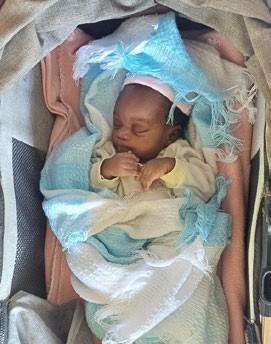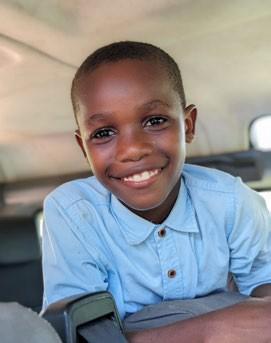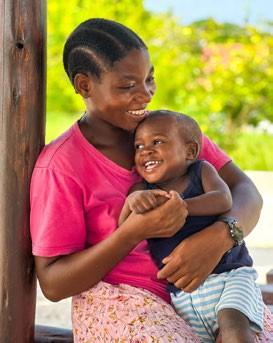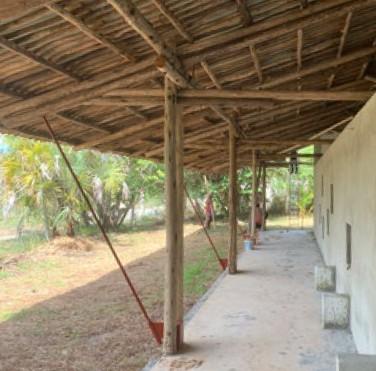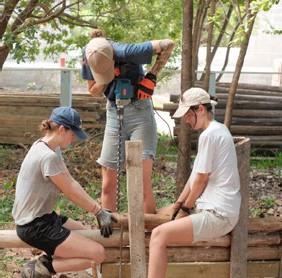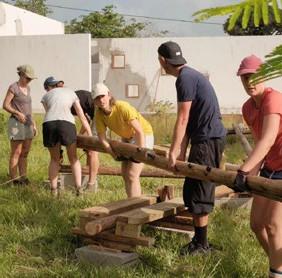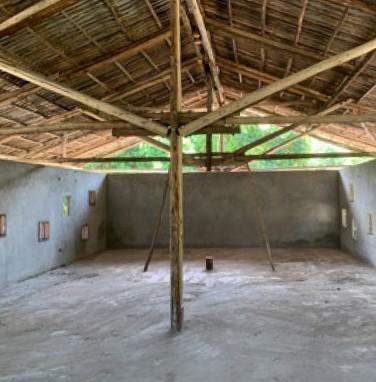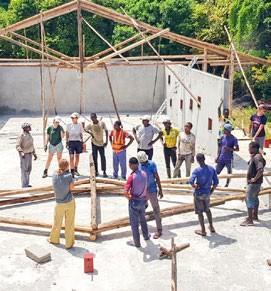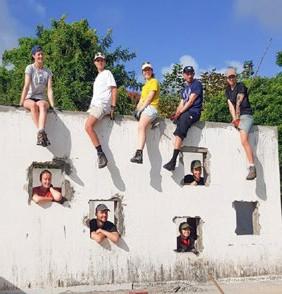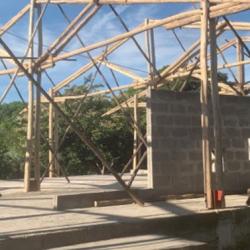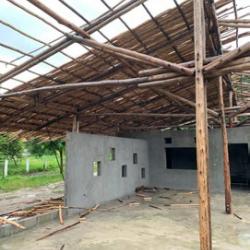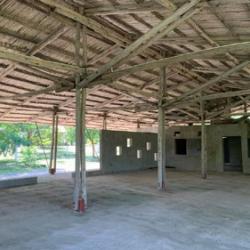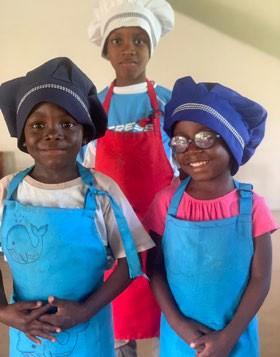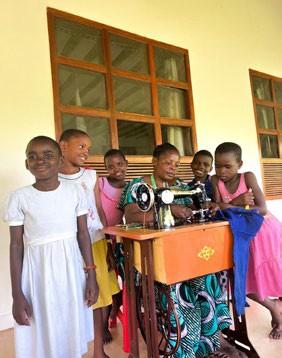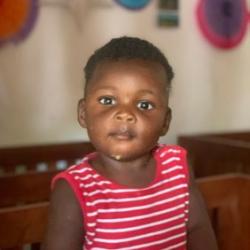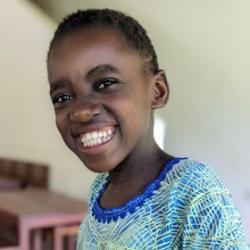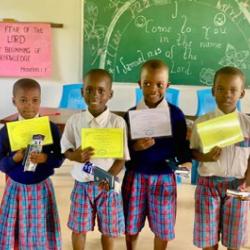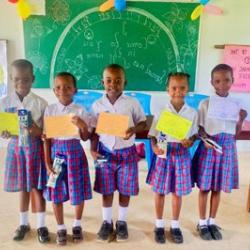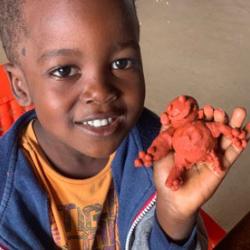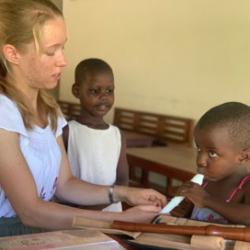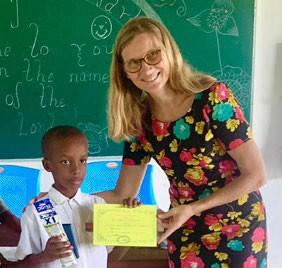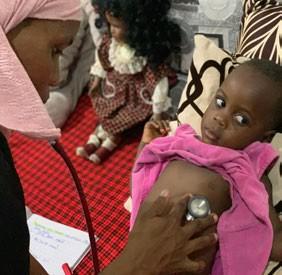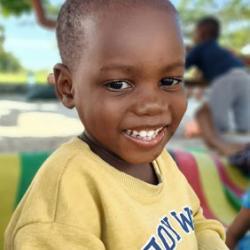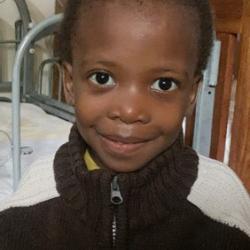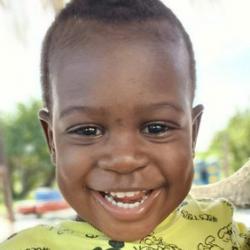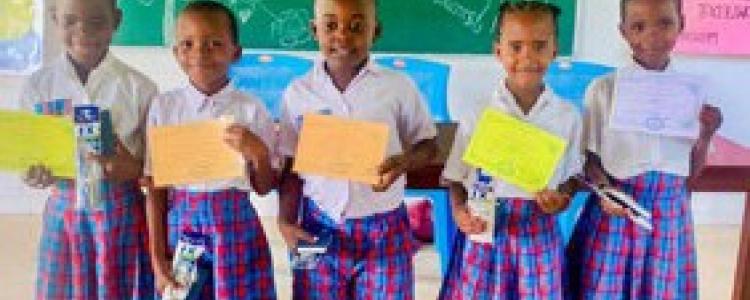
Dear Friends,
we are literally drowning in the rain. Continuous heavy rain has set in, unlike anything we’ve experienced in Tanzania before. Dry places have turned into raging streams, fields have been flooded, foundations undermined, and many of our villagers’ huts are standing ankle- or even knee-deep in water. Fortunately, the damage to our property has been limited.
But first things first – our children:
Our Children
We are now caring for 37 children. At the time of our last newsletter, we still had 31 children. One boy was adopted by a loving Tanzanian family, and then seven orphaned children joined us – including a newborn baby who was just three days old. We became one of the preferred children’s homes in the region.
This year, our primary school has 96 students in four grades. Fifteen of the schoolchildren come from the orphanage. At the start of the school year in January, four of our children were admitted to the first grade.
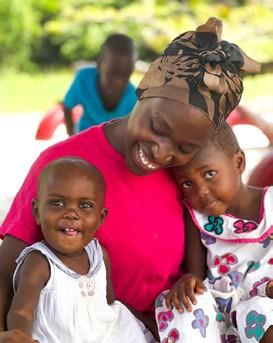
You will agree that raising children can involve many challenges. It is very important to maintain a balance of loving yet consistent handling. Our older children quickly notice when a caregiver has problems managing them. The consequences can be disastrous. Therefore we need to carefully evaluate whether our staff members are suitable for the task.
Once they start school, at the age of 6 or 7, our boys and girls live in separate buildings. We found it important that the boys have a male caregiver whom they can turn to and build a relationship with. Therefore, one of the new caregivers is male.
Gardening
Although one should generally be happy about rain (some African countries are currently suffering from severe drought), the rainy season presents a significant challenge for farming and gardening. It is almost impossible to sow seeds – they are simply washed away or rot due to the moisture. Important minerals and nutrients are also washed out of the already poor soil. Sometimes trees just topple over because the soil is so waterlogged that the roots can no longer hold them. Fields are flooded, and plants are washed away.
Sowing can only begin at the end of the rainy season from mid-May, although one must still reckon with a heavy downpour. African agriculture in the tropics cannot be compared to farming in Europe or the U.S. Africa suffers not only from extremely long periods of drought but also from too much rain during the rainy season.
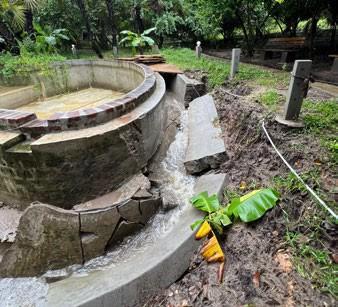
Health Care and Social Assistance
In recent months, we have become aware of more tragedies in the village. One particularly sad news struck us deeply. Two children from a neighboring village were attacked by crocodiles that were near the villages due to the flooding. Unfortunately, they did not survive the attack.
We try to help some of the sick in their homes with natural remedies as best we can. But sometimes, it’s just a warm meal, a mattress to sleep on, shoes, or clothing that is needed. We also help by giving rice, beans, oil, sugar, soap, etc. to the neediest.
Construction Work
We are very busy with construction work. Unfortunately, our earth cellar is not waterproof despite insulation and drainage. Therefore, after the rains, we will need to renew the exterior plaster, apply a two-component seal, bitumen, styrofoam, and studded foil. This should finally solve the problem.
The reconstruction of the burned-down school building is in full swing. At the turn of the year, the architecture students who had built the building six years ago came to help us again with constructing the wooden frame of the roof. The construction requires detailed knowledge that we would not have had without their repeated help. Since they are no longer students but fully employed, they had to take part of their precious vacation time to be able to come to Tanzania.
We are very grateful for their support. A true friendship has evolved. The roof is now finished – this time covered with steel sheeting for safety and not the easily flammable palm leaves again. The appearance is almost the same, although admittedly, the charm of the typical palm roof is missing. The electrical work is complete. Next, the floor screed needs to be renewed, and the interior finishing and woodwork are not yet finished. Additionally, plumbing installations and tiling need to be carried out. We estimate that we can reopen the building in the summer.
The construction of the cafeteria building is progressing well. Due to the fire hazard, we decided to use the same type of roof construction for the cafeteria as for the aforementioned school building. The dimensions of the buildings are similar, saving us elaborate planning work. After the roof’s completion, we can soon begin with the interior work. Many kitchen appliances will be imported from Germany. The quality is much better, and the costs are, if not cheaper, at least the same. We hope to inaugurate the building in December.
Unfortunately, the firefighting pool, completed at the end of 2023, was flooded by masses of water, and some of the walls of a drainage channel, which were damaged by the flood, had to be reconstructed.
For 2025, we plan to construct two more classrooms and an accommodation for guests or volunteers. Since our children will soon reach an age where they need more privacy, we will have to build two more homes two years from now – one for boys and one for girls. This will increase our capacity to our maximum of 50 to 60 children.
General Points
Jacky, our home manager, is overjoyed because she received a new leg prosthesis at the end of 2023. We had already reported about her in the last newsletter. The prosthesis and travel costs (to Germany) were a gift from specific friends, as well as a company in Austria.
We want to express our heartfelt thanks for your continued help. It is not a given fact that we can provide our children with everything they need month after month. We are grateful that the financial means to pay the regular salaries are available and that we can pay for the further expansion of our orphanage and school.
We thank all of you – because through you, we recognize the blessings of our God every day.
With warm regards and blessings.
yours
Wired Donations to:
Tanzania
DUNIA YA HERI African Family and Healthcare, P.O. Box 71573, Dar es Salaam, Tanzania
NIC Bank Tanzania Limited, Kariakoo Branch, Dar es Salaam
Account Number USD: 2000234853
Swift Code: SFICTZTZ
Intermediary Bank: CITIBANK NEW YORK, Swift Code: CITIUS33
Within the US
Donations from US-citizens are tax deductible if they are given to one of the following None Profit - 501c3 Organizations:
- our partners “RESTORE A CHILD”: http://restoreachild.org/donate/
- OUTPOST CENTERS INTERNATIONAL: http://www.outpostcenters.org/donate/
Please do not forget to mention the project name of »DUNIA YA HERI« on your check, transfer slip or the “ministry need”.

